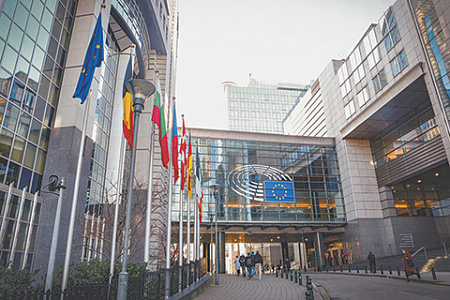
A scandal broke out in the European Parliament. Belgian law enforcement officers named deputies who received gifts from the Chinese technology giant Huawei in exchange for lobbying its interests. This could further complicate the already difficult relations between the European Union and China. The EU is changing its approach to China to a tougher one. The case of illegal lobbying of Chinese interests is a private manifestation of these changes.
The Belgian authorities officially asked to lift the immunity of five European parliamentarians in order to complete the preliminary investigation, which lasted two months. It will be done.
The President of the European Parliament, Roberta Metsola, mentioned the names of these parliamentarians. One was elected in Malta, the second in Bulgaria, and three in Italy. Huawei stated that it absolutely does not accept methods in which corrupt acts are allowed.
The incident, of course, can be placed in a broader context. As stated on the China Briefing website, relations between China and the European Union are a key indicator of the state of business in the world. Events on the geopolitical scene and competition in the field of technology increase the volatility of these relations.
The current composition of the European Parliament was determined by the elections held in June last year. They showed a shift in the balance of political forces. Centrist parties are losing support, losing ground to far-right groups, conservatives, and reformists. These shifts portend that the EU’s approach to China will become very controversial, and political and economic battles are possible.
The EU has traditionally taken a cautious approach towards China. This is reflected in the EU-China Strategic Outlook document published in 2019. He characterized ties with China as “partnership, competition, and systematic rivalry.” This three-pronged approach was subsequently confirmed in a document entitled “Conclusions of the European Council concerning China”.
However, in March 2023, the president of the European Commission, Ursula von der Leyen, made a statement that spoke about the tougher course of the EU. The European Union, in particular, demanded that China eliminate the advantages enjoyed by its companies in China. These advantages violate the WTO Charter and the principles of a market economy.
Fragmentation in the European Parliament after last year’s elections portends great uncertainty and even the absence of a unified EU strategy on the Chinese issue. As a result, European firms working with China and Chinese firms working with Europe have to operate in an environment where each side’s regulatory mechanisms are changing and becoming unpredictable.
All this is closely monitored by the Chinese government. To use the expression of Chinese officials, it is “cultivating alliances within Europe,” in other words, it is trying to split it. This course became apparent during Chinese President Xi Jinping’s recent tour to Europe. He paid visits to France, Serbia and Hungary. During this trip, Xi called the European Union China’s main trading partner.
And now there are discussions in the European Parliament on a key issue.: how to ensure the technological and strategic autonomy of the EU. The European Union rejected the opportunity to revive the previously shelved Comprehensive Investment Agreement with China. This is despite diplomatic efforts on the part of China, where they even promised to lift sanctions against members of the European Parliament who are particularly annoying to the Chinese authorities. At a forum in Beijing, EU officials indicated that there was “absolutely no intention” to reopen negotiations on the agreement. They said that obstacles were being created for foreign firms inside China, and that foreign companies were being pressured to transfer technology. Officials also pointed to overproduction in the Chinese manufacturing industry. The EU is now seeking a change in trade relations with China, especially in sensitive industries such as electric vehicles and solar panels.
In an interview with NG, Sergey Tsyplakov, a professor at the Higher School of Economics, noted: “Were you given gifts? So what of it? This is a common business practice. Despite the complexity of the EU’s relations with China, they depend on other factors. There will be a summit of the European Union and China. We are talking about a rapprochement between them in the economic sphere due to the actions of US President Donald Trump. Here’s what’s going on. The European Parliament will punish the deputies. And China lifted sanctions against members of the European Parliament. In other words, he wanted to eliminate one of the problems that complicated relations with the European Union. Whatever the hype in the press about the scandal, the tendency towards rapprochement is intensifying.”
How far will they go? This is a question. “For example, the European Union increases duties on parcels. This is a serious blow to Chinese foreign trade. This provokes a strong reaction in China. There are contradictions between China and the EU in the political field. But there are also disagreements on the economy. So we cannot say that an alliance will be created. They will establish more or less normal relations,” concluded Tsyplakov.
Meanwhile, the Chinese press highlights the positive attitude of the Chinese and EU leadership towards improving ties. She recalls that China and France in a joint statement reaffirmed their commitment to comply with the Paris Climate Agreement. This step was taken in defiance of Trump’s decision to withdraw from the climate pact in order to increase mining as a raw material for energy in the United States itself.
